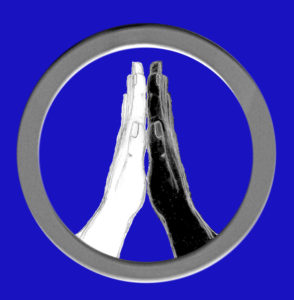A little over a year ago (May 2019) we wrote a column about Kush, a region in Africa mentioned numerous times in Tanakh. The link to that prior article is https://bethshalompgh.org/where-is-kush-which-is-mentioned-in-todays-haftarah-originally-published-may-10-11-2019/
We promised a follow-up article about those who are generally called “Ethiopian Jews” but who do not necessarily come from Ethiopia either directly or by heritage. They are also known as “Beta Israel” (“House of Israel”), a name said to come from the 4th century CE, when they refused to convert to Christianity.
It was almost exactly a year ago that Ethiopian Jews in Israel protested loudly for their rights after an Ethiopian-Israeli teen was killed by an off-duty police officer. Solomon Tekah was 19, had moved at the age of 12 with his family to Israel, and on June 30, 2019 (27 Sivan), he was at a park in Kiryat Haim, a neighborhood in Haifa. The off-duty officer had taken his wife and three children to a playground there and witnessed a scuffle among three teens and a younger boy. The officer tried to intervene, and though the accounts vary he ultimately drew his gun and fired, and Solomon died. He was buried on July 3rd (30 Sivan) last year.
The protests began in Haifa, where most protestors were nonviolent while others were riotous. Some blocked highways and main intersections (such as in Afula). The traffic stoppages made their point, as the demonstrators shouted, “End the killing, end the racism!”
This was not, of course, the first such protest: notably four years prior there was a viral video of two police officers beating an Ethiopian-Israeli soldier, and protests ensued in Tel-Aviv. In 2012 there were protests pursuant to redlining in housing. The prejudice has been ongoing, despite gains made by NGOs in boosting prospects and raising awareness.
Ethiopian-Israeli Jews earn on average considerably less than the general population, and are much more likely to face limited educational opportunities and to end up in prison, according to The Ethiopian National Project as reported by the BBC. Remember, too, that Israel rescued tens of thousands of Jews in secret operations in the 1980s and 1990s from the pervasive African famine and civil wars. The number of Israelis identified as Ethiopian Jews is currently around 140,000, in a population of almost nine million.
Is there a deeper history of discrimination? Well... yes, we are as collectively guilty as anyone.
Moses’ wife Zipporah notably withstood derision from Moses’ siblings for her Kushite heritage. Possibly the source of the disrespect was jealousy, as back then folks from Kush (which was far broader at the time than just modern-day Ethiopia) and neighboring Nubia were known for their extreme beauty and especially for the rich color of their skin.
Black Lives Matter.
